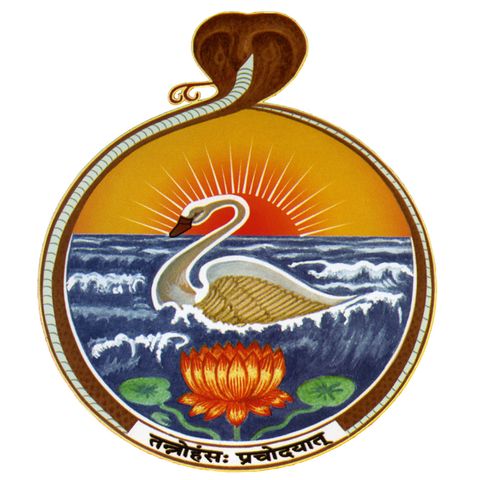Vivekachudamani 5 | Purifying the Mind (चित्त शुद्धि) and Developing the Eye of Spiritual Clarity (बोधचाक्षुष) | Swami Tattwamayananda

Iscriviti gratuitamente
Ascolta questo episodio e molti altri. Goditi i migliori podcast su Spreaker!
Scarica e ascolta ovunque
Scarica i tuoi episodi preferiti e goditi l'ascolto, ovunque tu sia! Iscriviti o accedi ora per ascoltare offline.
Descrizione
Verses: 49-59 This lecture was given by Swami Tattwamayananda at Stanford University on June 9, 2019. The lecture was hosted by the Stanford Hindu Students Association. Topics covered: -Seven questions...
mostra di piùThis lecture was given by Swami Tattwamayananda at Stanford University on June 9, 2019. The lecture was hosted by the Stanford Hindu Students Association.
Topics covered:
-Seven questions from the disciple on bondage, its causes and how to free oneself from bondage?
-Spiritual liberation is an individual journey. Through community effort, we cannot have community of Jivan-muktas. Analogies are provided to explain this.
-Absolute reality can be known through the eye of spiritual clarity (बोधचाक्षुष). Spiritual clarity is achieved through purification of the mind (चित्त शुद्धि) and by pursuing disciplines such as: discrimination between what is real and what is not real, renunciation of empirical things, self control, strong longing for liberation, listening to scriptures, understanding the meaning of scriptures and contemplating on the essence of scriptures.
-A scholar only helps provide intellectual conviction. Aparoksha-anubhuti is only possible through individual efforts.
-Avidya is the central cause of ignorance. Avidya leads to Kama (desire) which leads to Karma to fulfill that desire. If desires are left, one is born again to fulfill that desire. Jata-Bharata story is discussed. A king is born as a deer in his next life, due to his strong affection for a baby deer.
-Yoga, Sankhya and Karma-Yoga only take one to Chitta-Shuddhi, not to liberation. Liberation is achieved when Chitta-Shuddhi leads to Jnana-prapti, which leads to Moksha (identity with Brahman).
-Sakama-karma (karma for material prosperity) does not lead to Chitta-Shuddhi. Chitta-Shuddhi can be achieved by Karma-Nishtha (Karma-Yoga), where the fruits of action are renounced.
-The study of Vedanta is unique. Even to understand an elementary verse, the entire knowledge of Vedanta is needed. This is why Vedanta should be studied from a teacher who is fit.
-Four stages of shabda- Vaikhari, Madhyama, Pashyanti, and Para - are discussed. Vaikhari is explicitly uttering of mantras with a loud voice. Madhyama involves only lip movement. Pashyanti is mental and involves identification with the meaning of the mantra. Para is the highest form of prayer.
-Deva and Rishi rin (debt) are discussed. Swadhyaya is more meaningful once these debts are paid pack. Rishi debt can be paid back by passing the knowledge to others and the next generation.
-Scriptural study leads to chitta-shuddhi but does not grant liberation. After liberation, scriptures are not needed.
-Association with holy people helps in the individual spiritual journey. Individual contemplation and meditation is needed in addition to holy company.
Informazioni
| Autore | Vedanta Society, San Francisco |
| Sito | - |
| Tag |
Copyright 2024 - Spreaker Inc. an iHeartMedia Company
